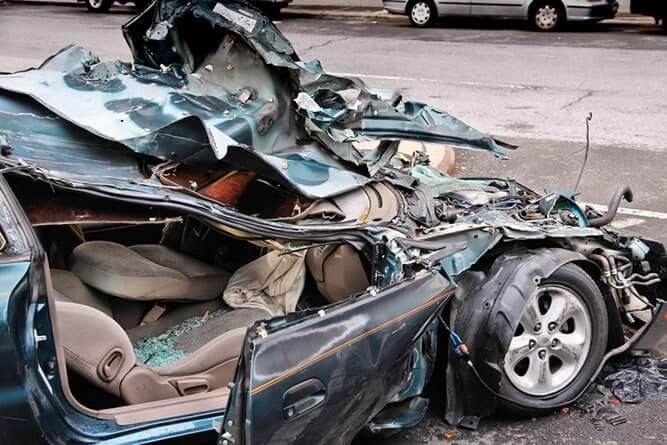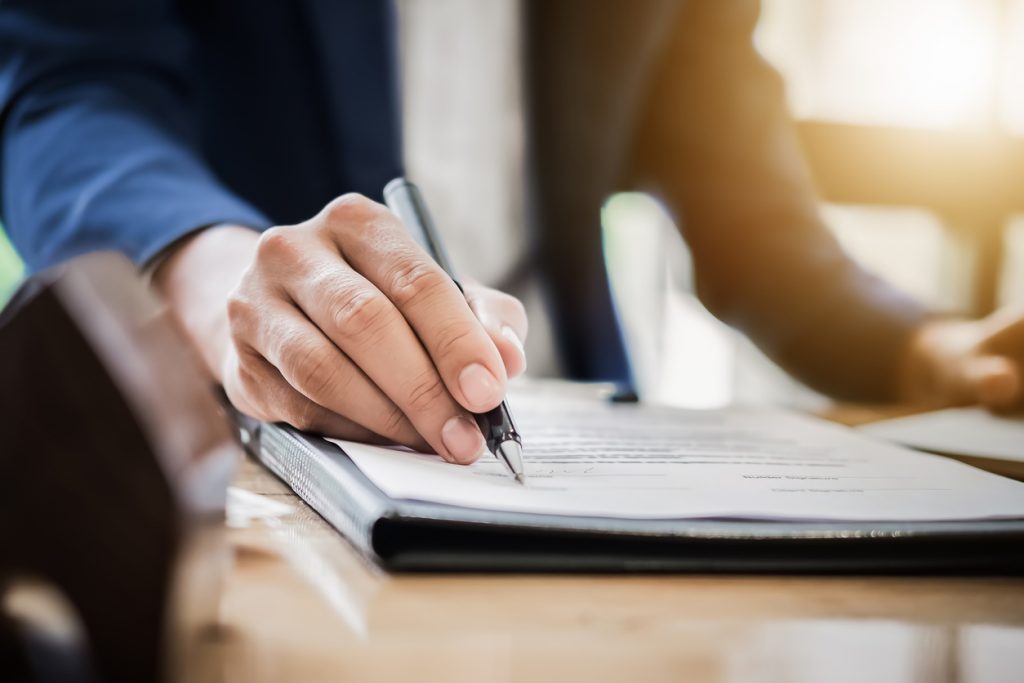What to Do When You’re in a Car Accident
Heart pounding like a drum beating against your chest, mind racing, adrenaline surging through your veins—these are the telltale signs of being in a car accident. In such an overwhelming situation, it can be hard to know what to do. But staying calm and following these steps can help protect you and others involved.
Pull Over and Stay Calm
First and foremost, if possible, pull over to a safe location and turn on your hazard lights. This will alert other drivers and help prevent further accidents. Once you’re safely off the road, take a moment to collect your thoughts and compose yourself. Remember, panicking will only make the situation worse. Maintaining a level head is crucial for making sound decisions.
Exit your vehicle only if it’s safe to do so. If you’re injured or disoriented, stay inside and wait for help to arrive. However, if there’s an immediate danger, such as a fire or a leaking gas tank, get out of the car as quickly as possible.
Once you’re out of the vehicle, check yourself for injuries. If you’re hurt, call 911 immediately. Even if you don’t feel injured, it’s essential to get checked out by a medical professional, as some injuries may not be apparent right away. It’s always better to err on the side of caution.
Now, take a deep breath and focus on staying calm. This will help you think clearly and make informed decisions.
When You’re in a Car Accident
A car accident can happen to anyone. It can be a near-miss or a major collision. It can result in minor injuries or even death. The chances are that you will be involved in a car accident at some point in your life. If you are, it is important to remain calm and know what do. First things first, though: Your safety comes first.
Safety First
After a car accident, the first thing you should do is make sure you’re safe. Pull over to the side of the road if it is possible to do so, and turn on your hazard lights to warn other drivers. If your car is not drivable, get out of the car and move to a safe location. Once you are in a safe place, call the police and report the accident.
If you or anyone else is injured, call for medical help immediately. Even if you do not feel injured, it is important to get checked out by a doctor. Some injuries may not be immediately apparent so it’s better to be safe than sorry.
If there is no one else around to help you, it can be tempting to leave the scene of the accident and go home to lick your wounds. However, it is important to stay at the scene of the accident until the police arrive. Leaving the scene of an accident can lead to more criminal charges, including hit-and-run.
Once the police arrive, they will investigate the accident and take statements from the drivers involved. They will also determine who is at fault for the accident. If you are found to be at fault, you may be cited or even arrested.
When You’re in a Car Accident
When you’re in a car accident, there are a few things you should do. First, check for injuries. Second, call the police. Third, exchange information with the other driver. Fourth, take photos of the damage. Fifth, get a copy of the police report. By following these steps, you can help protect your rights and ensure that you get the compensation you deserve.
Check for Injuries
After a car accident, it’s important to check yourself and your passengers for injuries. Even if you don’t feel any pain, you may still have been injured. Some injuries, like whiplash, may not show up right away. If you’re not sure whether you’re injured, it’s best to err on the side of caution and get checked out by a doctor.
If you or someone else is seriously injured, don’t try to move them. Call 911 immediately and wait for help to arrive. Moving an injured person can make their injuries worse.
If you’re able to move, get out of the car and away from traffic. If you can’t get out of the car, stay calm and wait for help to arrive. Don’t smoke or use your cell phone, as these things can increase your risk of being injured in a fire or explosion.
Exchange Information
Once you’ve checked for injuries, it’s important to exchange information with the other driver. Get the following information:
- Name
- Address
- Phone number
- Insurance company
- Policy number
- License plate number
- Make and model of car
It’s also a good idea to take a picture of the other driver’s license and insurance card. This will help you keep track of the information in case you lose it.
Take Photos
After you’ve exchanged information, take pictures of the damage to both cars. These photos will serve as evidence of the accident and will help you get the compensation you deserve from the insurance companies.
Be sure to take pictures of the following:
- The damage to both cars
- The location of the accident
- Any injuries
Get a Copy of the Police Report
If there was a police report, you should get a copy of it. The police report will contain information about the accident, such as the names and addresses of the drivers, the location of the accident, and the cause of the accident.
When You’re in a Car Accident
Being in a car accident can be a jarring experience, leaving you shaken and uncertain of what to do. However, it’s crucial to remain calm and composed, as there are essential steps you need to take to protect yourself and other parties involved.
Exchange Information
One of the most important steps after a car accident is to exchange information with the other driver(s) involved. This includes your names, addresses, phone numbers, email addresses, driver’s license numbers, and insurance company details. It’s also essential to jot down the make, model, and license plate numbers of all vehicles involved.
Why is exchanging information so important? First and foremost, it provides the basis for communication between the parties involved and their insurance companies. It also helps establish who was involved in the accident and can prevent disputes down the road. Moreover, insurance companies require this information to process claims and determine liability.
Remember, cooperating with the other driver(s) and providing accurate information is crucial for a smooth and efficient resolution of the accident. Don’t hesitate to ask for clarification if anything is unclear. By working together, you can ensure that everyone’s rights are protected and the process of settling the claim is streamlined.
Here are some additional tips for exchanging information after a car accident:
- If possible, move your vehicles to a safe location before exchanging information.
- Stay calm and polite, even if the other driver(s) are upset.
- Take photos of the accident scene, including the damage to the vehicles and any visible injuries.
- If there are any witnesses, get their contact information.
- Report the accident to the police, especially if there are injuries or significant damage.
When You’re in a Car Accident
The aftermath of a car accident can be a confusing and stressful time, but it’s crucial to remain calm and take the necessary steps to protect yourself and your interests. Here’s a comprehensive guide to help you navigate the immediate aftermath of a collision:
Document the Scene
Preserving a record of the accident scene is vital. Whip out your smartphone and snap pictures of the damage to your car, the other involved vehicles, and any visible injuries. Don’t forget to capture the surrounding area, including traffic signs, road conditions, and any potential hazards. These photos will serve as valuable evidence in case of a dispute or insurance claim.
Beyond photography, gather as much information as possible. Jot down the names and contact details of any witnesses who saw the accident unfold. If there are injuries, note their severity and who was involved. Take note of the license plate numbers and insurance companies of the other vehicles involved. Every piece of information you collect will help paint a clearer picture of what transpired.
Don’t be afraid to ask for help from others at the scene. They can assist in gathering information or providing support. Remember, the more details you document, the better equipped you’ll be when it comes time to file a report or pursue an insurance claim.
When You’re in a Car Accident
Being involved in a car accident can be a frightening and overwhelming experience. In the aftermath of a crash, it’s crucial to know the steps to take to ensure your safety, protect your rights, and navigate the insurance process smoothly. Here’s a comprehensive guide to help you manage the aftermath of a car accident effectively.
Contact Your Insurance Company
It’s imperative to report the accident to your insurance company as soon as possible. They will guide you through the claims process, initiate an investigation, and help you get your car repaired or replaced. Don’t hesitate to share all the pertinent details, including the time, location, and circumstances of the accident. Your insurance company is there to support you and minimize the hassle during this stressful time.
Gather Evidence
Documenting the accident thoroughly is vital for insurance purposes and potential legal proceedings. Take photos of the damage to both vehicles, any visible injuries, and the surrounding area. If possible, obtain contact information from any witnesses. Jot down a detailed account of the events leading up to and including the crash.
Seek Medical Attention
Even if you don’t feel injured immediately, it’s crucial to seek medical attention promptly. Some injuries, such as whiplash, may not manifest symptoms right away. A medical evaluation will ensure you receive proper treatment and document any injuries for insurance claims.
Exchange Information
Swap essential information with the other driver(s) involved in the accident. This includes your name, address, phone number, insurance company, and policy number. Obtain a copy of the police report, if one was filed, as it will provide an official record of the incident.
Don’t Admit Fault
While it’s tempting to apologize out of courtesy, avoid admitting fault at the scene of the accident. This could potentially jeopardize your insurance claim or legal rights. Stick to the facts and explain the situation without assigning blame.
Hire an Attorney (Optional)
If you’re dealing with serious injuries, extensive property damage, or disputes with the other driver’s insurance company, consider consulting with an attorney. An experienced personal injury lawyer can protect your rights, negotiate a fair settlement, and represent you in court if necessary. However, this is not always necessary, and you should carefully weigh the costs and benefits before making this decision.
When You’re in a Car Accident
In the aftermath of a car accident, it’s natural to feel shaken and overwhelmed. But it’s important to stay calm and take the necessary steps to protect your health and well-being. Here’s what you need to do if you’re ever involved in a car accident:
Seek Medical Attention
Even if you don’t feel injured, it’s essential to see a doctor to rule out any hidden injuries. Some injuries, such as whiplash and concussions, may not manifest themselves immediately. Seeking medical attention promptly will ensure that you receive the appropriate treatment and documentation of your injuries.
Exchange Information
Once you’ve checked for injuries, exchange information with the other driver(s) involved. This includes your name, address, phone number, insurance company, and policy number. It’s also important to take pictures of the accident scene, any damage to your vehicle, and any visible injuries. These photos will serve as valuable documentation for your insurance claim.
Contact the Police
In most cases, you’ll need to file a police report. The police report will document the accident details, including the time, location, and witness statements. This report will be vital for your insurance claim and potential legal proceedings.
Report the Accident to Your Insurance Company
Promptly report the accident to your insurance company. They will initiate the claims process and guide you through the necessary steps. Be honest and thorough when providing details of the accident and your injuries.
Seek Legal Advice
If you’ve sustained serious injuries or if there’s a dispute about who was at fault for the accident, consider seeking legal advice. An attorney can help you protect your rights and negotiate a fair settlement with the insurance companies and other parties involved.
Protect Yourself from Fraud
Unfortunately, car accidents often attract fraudsters who take advantage of victims. Be wary of individuals who approach you at the accident scene or in the days following the accident offering medical treatment, legal representation, or other services. Always do your research and verify the credentials of any professionals you work with.





Leave a Reply